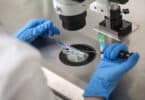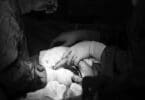 Alexis Stewart spoke with Oprah yesterday about her struggle to have a baby.
Alexis Stewart spoke with Oprah yesterday about her struggle to have a baby.
The radio host and daughter of Martha Stewart has spent the last year seeing fertility doctors and trying cutting-edge procedures to get pregnant.
Alexis, now 42, put off trying to have a baby at 36 because she was ‘it wasn’t a good time” and then she forgot about it.
Two years later it became a priority again, but now she is worried that “it is almost too late”.
“[We] get distracted because now we have jobs, and now we have other things to do. Medicine seems miraculous—you can do anything you want,” she says. “Movie stars have babies late. It seems all possible, but you don’t hear the stories of the people who can’t have a baby.”Now that Alexis is in her 40s, she says getting pregnant is difficult because her eggs are “dry and crusty.” To increase the number of eggs her body produces, Alexis says she takes an arsenal of drugs each month.
Her medical routine begins every month on the day after she gets her period. “I go to the doctor and test my blood,” she says. “They do an ultrasound. They look at my ovaries to make sure there are no cysts. They check the lining of my uterus, and then that night, I begin my medication.”
Every evening, Alexis says she gives herself two injections of fertility drugs. “Then, on about the 11th day, the doctor will say, ‘You’re ready. In two days we’re going to harvest your eggs,'” she says.
Doctors have tried the ICSI—intracytoplasmic sperm injection—method with some of Alexis’s viable eggs and sperm she got from a sperm bank. “ICSI is where they take the egg and they poke a hole in it,” she says. “They put the sperm in—they don’t just wait for it to fertilize, because your egg is hard and old and crusty. It doesn’t want to make a baby.”
Alexis says she’s had three egg implantations, but none of them have stuck. “Last month, I had no eggs that were viable, so I’m sort of back to square one at the moment,” she says.
Fertility treatments can be time-consuming and emotionally draining. To keep things in perspective, Alexis says she tries to think of them as part of a job. “If I get too emotional about it, I’ll be unhappy all the time or freaked out all the time,” she says. “So I look at it as sort of a chore. … Not about having a baby, but what I have to go through to get there.”
Martha has been helping with the cost of the procedures and giving moral support as well.
When Oprah asked if she would like a grandchild. Alexis responded “Desperately.”
She plans to continue with the treatments until doctors say that there is nothing more they can do.
No back up plan is in place.
“When I have to think about my other options, then I will do that. But at the moment, I can only think about this option.”






